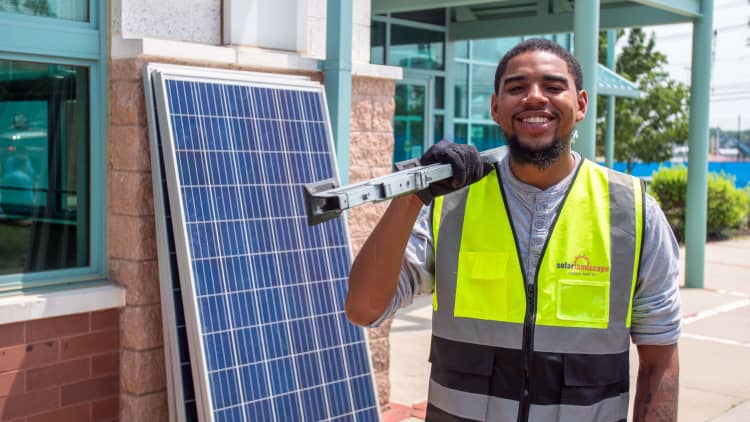"Homesick" could take on a new meaning for you once you realize that some ordinary things around your house may be affecting your health.
While the home can be a safe space, if not properly cleaned, it can also be a petri dish of substances that can make you sick.
With so many things to worry about, it can be easy to overlook the small things, but even those small things can have an effect on your body.
"People should really pay more attention to just good old fashioned cleaning to stay healthy," according to Mike Bidwell, president and CEO at Neighborly, a network of home service brands.
Here are some things in your home that are practically invisible, or would require a closer look — and could be impacting your immune system.
3 things in your house that might be making you sick
- Uncleaned air filters
- Mold
- Germs, especially in bathrooms or kitchens
Uncleaned air filters
If you're not changing your air filters often enough, it's likely reducing your air quality at home, says Bidwell.
An uncleaned air filter can trigger allergies and offer less ventilation in your house, reducing your protection from respiratory viruses, he adds.
"It's about the simplest thing that a home owner can do to maintain good indoor air quality, especially during flu season and [with] other respiratory viruses that are going around," says Bidwell.
Even in the warmer months, dust build-up in filters can worsen your allergy symptoms because pollen and mold can get sucked into the unit and be redistributed around the house, he says.
Bidwell recommends changing your air filter quarterly, at least, to prevent these outcomes. If you have a pet or struggle with allergies, he suggests replacing them every 60 days.
Mold exposure
Mold isn't as big of a concern in houses because it's more prevalent outdoors, according to Dr. Andrej Spec, associate professor of medicine and director of the Invasive Mycoses Clinic at Washington University School of Medicine in St. Louis.
In fact, mold is in every space that people have occupied; the harm lies in large doses within the home, Spec says.
"Some people in their homes can have very high levels of mold. Most commonly what you'll see is worsening of allergies and asthma," Spec says.
This more often occurs in people who are prone to allergies and asthma already, he adds.
According to Bidwell, common places in the home where mold that you can see lives are:
- Where the tile meets the tub in the bathroom
- Around or inside appliances, especially front-load washing machines
- Under sinks, especially cabinets under the kitchen sink
- Bathroom cabinets near or under a sink
Using a bleach and water solution in a spray bottle, you can likely clean mold off of hard, non-porous surfaces while wearing rubber gloves and eye protection, says Bidwell. "Saturate it thoroughly and let it sit for one to two hours," he says.
It's important to make sure you're diluting every six to eight ounces of bleach with a gallon of water, he advises.
Soft surfaces with mold on them, including dry wall and insulation, should be tossed, Bidwell adds. And Spec strongly advises against using bleach on wooden surfaces; instead he suggests using vinegar to stop mold growth in those places.
If cleaning up mold in your home feels beyond your scope or the mold has spread too far, both experts recommend hiring a professional to get the job done.
Germs on hard surfaces
During flu season, Bidwell encourages you to wipe down hard surfaces in your home more frequently. This includes door knobs, light switches, handles, keyboards, toilets and remote controls.
"By the way, those [products] need a few minutes to work. You can't just spray it on and then immediately dry it off," he notes.
You should also pay closer attention to rooms such as kitchens and bathrooms, where most germs tend to accumulate, especially if you have kids in school who may be bringing home viruses, he adds.
"It's a good thing to just walk around and check these things sometimes," says Bidwell.
Want to earn more and work less? Register for the free CNBC Make It: Your Money virtual event on Dec. 13 at 12 p.m. ET to learn from money masters like Kevin O'Leary how you can increase your earning power.
Sign up now: Get smarter about your money and career with our weekly newsletter



